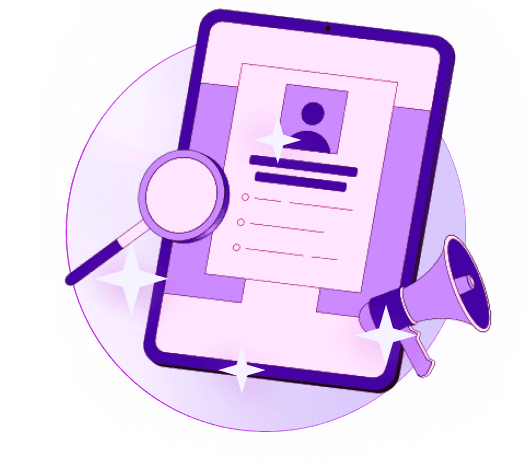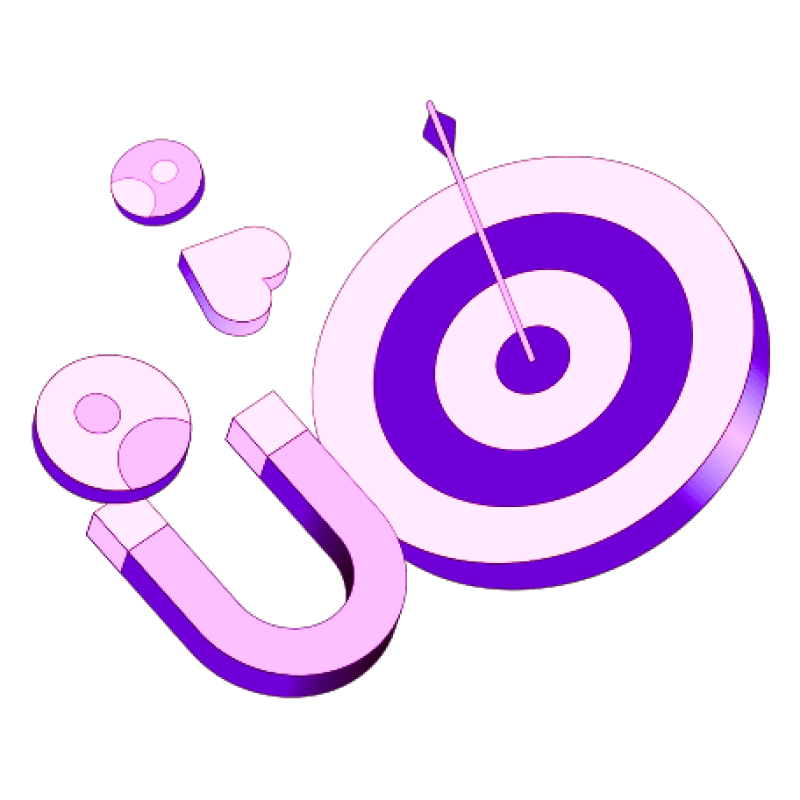Blogs
Articles


How to Score your Leads for Best Outreach Results
In the competitive landscape of modern sales, it's crucial to focus your efforts on the leads most likely to convert. This is where sales lead scoring comes into play. Sales lead scoring is the process of assigning values to sales leads based on their likelihood to make a purchase.
By evaluating leads systematically, businesses can prioritize their efforts and ensure that sales teams spend their time efficiently.
Various Sales Lead Scoring Frameworks Commonly Used
Demographic Scoring
This framework evaluates leads based on demographic information such as age, industry, job title, and company size. For example, a B2B software company may prioritize leads that are decision-makers in large enterprises.
Behavioral Scoring
Behavioral scoring involves assessing a lead's actions and engagement level with your brand. Website visits, email opens, social media interactions, and content downloads are all behaviors that might indicate a lead's interest and readiness to buy.
Firmographic Scoring
Specific to B2B companies, firmographic scoring considers company-specific information like annual revenue, number of employees, and geographic location. For instance, a cloud service provider might score higher those leads from tech-forward regions.
BANT Scoring
BANT stands for Budget, Authority, Need, and Timing. This method evaluates whether a lead has the purchasing budget, decision-making authority, legitimate need for the product, and the right timing for purchase.
Key Factors and Criteria for Scoring Sales Leads
Demographics: Age, gender, job title, industry
Behavioral Data: Email engagement, website visits, content downloads
Firmographics: Company size, revenue, industry type
Technographics: Technology stack of the potential client
Buyer’s Journey Stage: Awareness, consideration, decision
Benefits of Implementing an Effective Sales Lead Scoring System
Improved Sales Efficiency: Teams focus on high-potential leads, reducing wasted effort.
Enhanced Marketing Strategies: Insightful data helps tailor marketing strategies to engage high-scoring leads.
Higher Conversion Rates: Personalized outreach based on lead scores results in better conversion rates.
Optimized Resource Allocation: Allocate resources and efforts where they matter most, maximizing ROI.
Steps to Develop and Implement a Sales Lead Scoring Framework
Define Ideal Customer Profile (ICP): Gather data to identify who your best customers are.
Determine Key Scoring Criteria: Choose demographic, behavioral, firmographic, and technographic factors.
Assign Scores to Criteria: Establish a point system for each criterion based on its importance.
Set Up Lead Scoring System: Use CRM or marketing automation tools to automate scoring.
Regularly Review and Refine: Analyze the effectiveness and make necessary adjustments.
Common Challenges and Solutions in Sales Lead Scoring
Data Inconsistency: Ensure data accuracy through validation processes and regular audits.
Overcomplicated Models: Keep the scoring model straightforward to maintain clarity and effectiveness.
Bias in Scoring: Use diverse data points to create a balanced scoring system.
Resistance to Adoption: Train and support the sales and marketing teams to encourage buy-in and smooth adoption.
Conclusion
Implementing an effective sales lead scoring framework can transform your sales process, leading to more targeted efforts and higher conversion rates. To get started, define your ideal customer profile, determine key scoring criteria, and regularly refine your scoring model based on performance data.
Actionable Takeaways:
Start Small: Begin with basic demographic and behavioral data, then expand.
Use Technology: Leverage CRM and marketing automation tools for efficient scoring.
Stay Flexible: Regularly review and adjust your scoring model to ensure its continued effectiveness.
Mastering sales lead scoring will empower you to make data-driven decisions that drive your business forward.
Ready to enhance your lead scoring and outreach?
Discover how Persana.ai can elevate your sales process with advanced lead scoring and AI-powered insights. Persana.ai integrates seamlessly with your CRM to provide precise, actionable data for optimizing lead prioritization and boosting conversion rates.
Start your free trial today and see how Persana.ai can transform your sales strategy!


Create Your Free Persana Account Today
Join 5000+ GTM leaders who are using Persana for their outbound needs.
How Persana increases your sales results
One of the most effective ways to ensure sales cycle consistency is by using AI-driven automation. A solution like Persana, and its AI SDR - Nia, helps you streamline significant parts of your sales process, including prospecting, outreach personalization, and follow-up.

